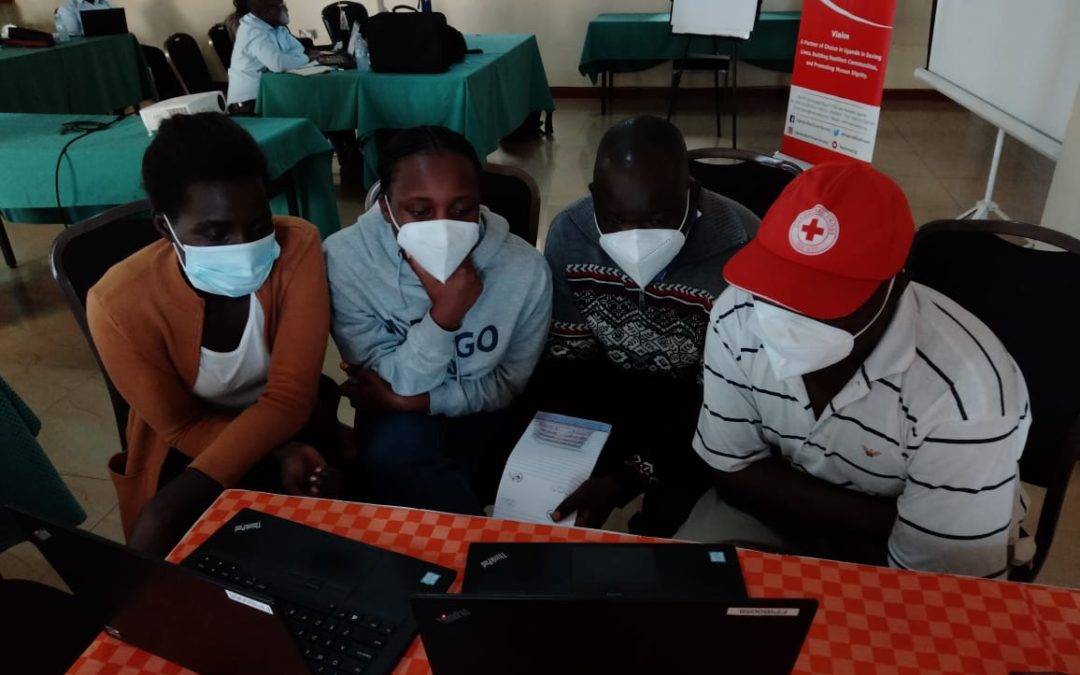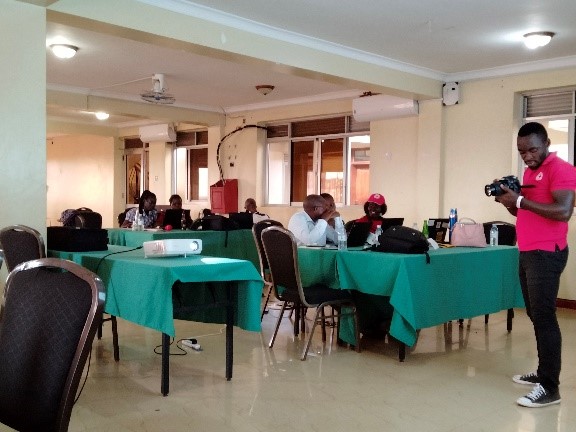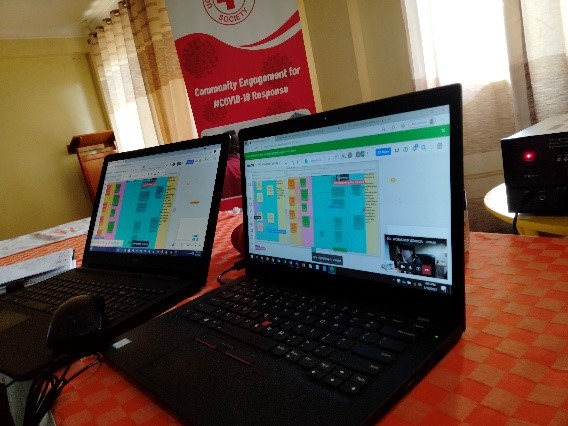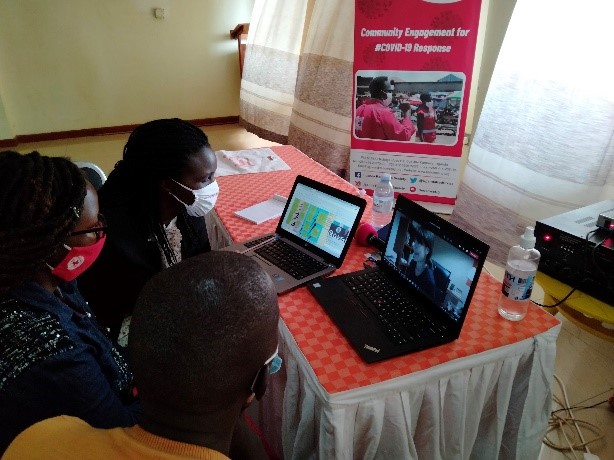written by Sylvester Bett, AutRC WASH Delegate in East Africa
As part of enhancing and bolstering capacity development and knowledge transfer, WASH strategy development with Uganda Red Cross Society (URCS) and Ethiopia Red Cross Society (ERCS) is part of the envisioned outcomes of the Skybird Programme. This entails establishing the theory of change for the anticipated capacity enhancement, followed up by strategy development for each pathway of changes identified in the theory of change. Subsequently this requires support through activities and actions that would result in the desired changes.
COVID-19 makes everything more complicated again…
Due to the prevailing Covid19 pandemic the TOC process for the program was delayed from 2020 to 2021 with the hope that the situation would improve allowing room for the TOC development workshop to be undertaken. However, as most of you will know, the situation has not improved which is why the lead consultant, Libertad González Hernández from Netherlands Red Cross, could not travel to East Africa to facilitate the workshop personally.
Considering that time is moving fast, and the situation is unlikely to change in due time, the Skybird team developed a hybrid model involving the lead facilitator guiding the process virtually and myself undertaking the support role physically with the workshop attendees in Lira. Lira was chosen as a location as they are one of the branches implementing a Skybird micro-project. This gave the team the opportunity to incorporate a field visit after the TOC workshop.
The hybrid model was chosen due to the following reasons:
1.) virtual meetings are subject to a lot of challenges including technological, networks instability among others
2.) the team involved in the workshop had varied capacities hence needed close personal support as well as the expert support
3.) the need to have the team together in order to focus on the TOC task within the given time.
Participants were devided into 4 groups of 4-5 members. All groups were seated far from each other to adhere with COVID-19 safety measures.
The workshop set up
The workshop took place from May 9 to 14, 2021 in Lira, where all the participants had a chance to attend together. They were divided into four groups and, due to the prevailing COVID-19 situation, the groups were positioned far from each other and constituted only 4 to 5 members. Interactions between groups would only be by microphone or the virtual platforms in use (details below). The lead facilitator siting in Spain was interacting with the groups in sessions via Microsoft Teams and other virtual tools, while the in-house facilitator was supporting in moderation and ensuring all technological challenges are addressed immediately as well as providing backup in the facilitation in case the connection is lost to ensure a smooth process.
The 5 workshop days were set up as follows:
Each day had a set of activities starting with a recap of the 2018 TOC report and building up to the final TOC chart.
Day 1: Due to the new approach, the team was taken through an IT session for a start which took a large part of the morning. The purpose of this was to allow the team to familiarize with the various platforms. This was achieved by letting the team log into the platform and perform basic operations, log out, re-log in until everyone would feel comfortable with it.
The newly introduced platforms were,
1) ahaslides.com for expectation setting, evaluations, and some interactive group fun.
2) Miro board as a virtual flip chart alternative that allows for structured online team work.
After all the groups had familiarised with the platforms the day rolled on starting with a review of the URCS overall strategy, then a recap of the initial WASH TOC done in 2018. The goal of the WASH department was then reviewed and agreed upon before the groups progressed to undertake mapping of the stakeholders and the offers from the stakeholders.
Day 2: the groups worked on identifying the best offers, which included clustering the offers and then developing the long-term outcomes.
Day 3: the teams had a full day of group breakout sessions with periodic virtual visits by the lead facilitator to discuss the long-term outcomes they were working on. Based on this they started with the development of pathways for change. By observing the build-up of the Miro board, the facilitators could identify struggling groups and then call them up for special discussion and guidance.
Day 4: the groups started by presenting the outputs of their work which is ultimately the pathway they have developed and linked to the goal. The rest of the groups then discussed in plenary and contributed to the presenting group’s output. After all the groups had presented, they then worked on the virtual chart jointly with each group linking all the activities, outputs, outcomes and the goal on the Miro board. At the end of the day the raw draft of the TOC chart was ready.
Day 5: a review of the developed TOC was done followed by working out assumptions and an adequate monitoring plan. At the end of the day the final draft TOC was presented to the team and afterwards the workshop ended with a COVID safe farewell celebration.
Reflections
The TOC development workshop for the URCS WASH department was very successful with the final product being developed. The teams were very excited to have worked through this new approach and commented that it utilized their time very well.
The training was so engaging. The different groups kept focused on the Miro board to ensure they do their assignments on schedule and as it’s required. Presentations were agreed upon instantly as suggested changes are made. There was no need to rewrite things as would be the case with using flip charts since the work was captured automatically in the system. We really appreciated the technology.
Personal conclusion
The future of strategic meetings and workshops has probably forever moved from the physical facilitation to the virtual space or a hybrid approach, having been catalysed by the COVID-19 pandemic. To tap into this vast opportunity, organizations have a chance to adopt by understanding their team’s capacities and working out fully virtual or hybrid session in order to have effective workshops and meetings that deliver the desired results.
It is important to note that people easily get fatigued by concentrating on the screen. Therefore, the forums should be planned with adequate flexibility to allow people to relax with interactive sessions which will result in better productivity and creativity. The space of virtual workshops and conferencing is still very wide, and a lot of unexplored potential remains for us all to tap into.



